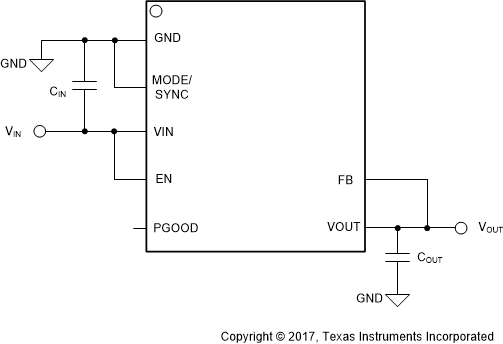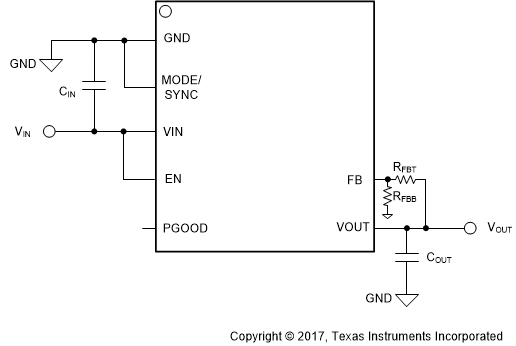SNVSAQ4C December 2017 – March 2023 LMZM23601
PRODUCTION DATA
- 1 Features
- 2 Applications
- 3 Description
- 4 Revision History
- 5 Pin Configuration and Functions
- 6 Specifications
- 7 Detailed Description
- 8 Application and Implementation
- 9 Device and Documentation Support
- 10Mechanical, Packaging, and Orderable Information
Package Options
Refer to the PDF data sheet for device specific package drawings
Mechanical Data (Package|Pins)
- SIL|10
Thermal pad, mechanical data (Package|Pins)
Orderable Information
8.2 Typical Applications
The LMZM23601 module requires very few external components for a complete DC/DC converter design. If the output voltage for the application is 3.3 V or 5 V, the fixed output voltage option of the LMZM23601 device can be used. In such cases, the design is as simple as adding only an input and an output capacitor. The adjustable output voltage version of the device allows the user to set the output voltage between 1.2 V and 15 V with the addition of two feedback resistors to the bill of materials.
 Figure 8-1 Fixed 5-V or 3.3-V Typical Application Circuit
Figure 8-1 Fixed 5-V or 3.3-V Typical Application Circuit Figure 8-2 Adjustable 1.2-V to 15-V Output Typical Application Circuit
Figure 8-2 Adjustable 1.2-V to 15-V Output Typical Application Circuit